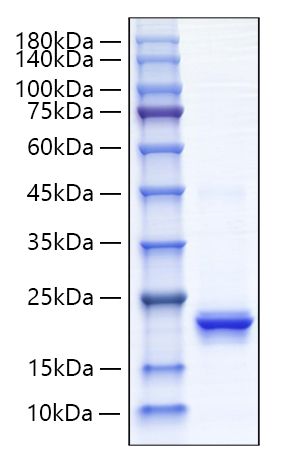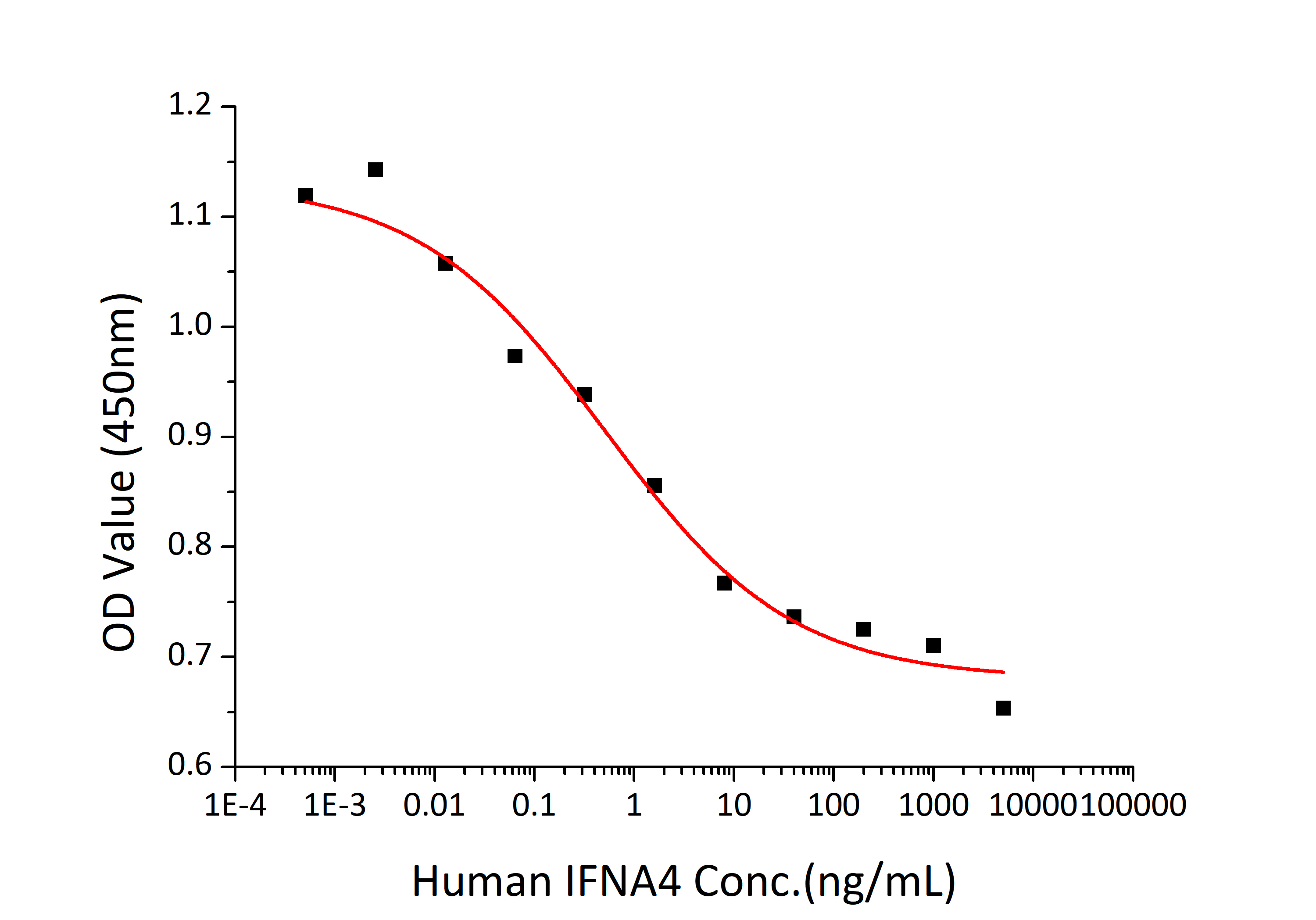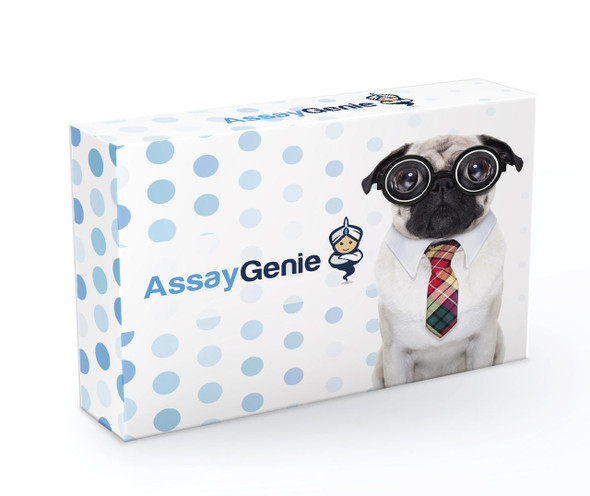Description
Recombinant Human IFN-alpha 4 Protein
The Recombinant Human IFN-alpha 4 Protein is a biologically active recombinant protein that plays a significant role in various cellular processes and signaling pathways in human biology. This protein is widely employed in immunological research, cell biology studies, protein-protein interaction analyses, and therapeutic development, providing researchers with a reliable tool for investigating IFN-alpha 4 function and its implications in health and disease.
This product (SKU: RPCB1686) is produced using advanced expression systems and features a C-His tag for convenient detection and purification. The protein exhibits a calculated molecular weight of 20.22 kDa with an observed molecular weight of 15-20 kDa under denaturing conditions, achieving ≥ 90 % as determined by SDS-PAGE.. Functional bioactivity has been validated through rigorous quality control assays, confirming its suitability for demanding research applications.
Key Features
| High Purity by Affinity Chromatography | |
| Mammalian & Bacterial Expression Systems | |
| High lot-to-lot consistency via strict QC |
| Product Name: | Recombinant Human IFN-alpha 4 Protein |
| SKU: | RPCB1686 |
| Size: | 20 μg , 50 μg , 100 μg |
| Reactivity: | Human |
| Synonyms: | Interferon alpha-4, IFN-alpha-4, Interferon alpha-4B, Interferon alpha-76, Interferon alpha-M1, IFNA4 |
| Tag: | C-His |
| Calculated MW: | 20.22 kDa |
| Observed MW: | 15-20 kDa |
| Gene ID: | 3441 |
| Protein Description: | High quality, high purity and low endotoxin recombinant Recombinant Human IFN-alpha 4 Protein (RPCB1686), tested reactivity in HEK293 cells and has been validated in SDS-PAGE.100% guaranteed. |
| Endotoxin: | < 0.1 EU/μg of the protein by LAL method. |
| Purity: | ≥ 90 % as determined by SDS-PAGE. |
| Formulation: | Lyophilized from 0.22 μm filtered solution in PBS (pH 7.4). Normally 8% trehalose is added as protectant before lyophilization. |
| Bio-Activity: | Measured in a cell cytotoxicity assay using TF-1 cells. The ED 50 for this effect is 0.26‑1.02 ng/mL, corresponding to a specific activity of 9.80×10 5 ~3.85×10 6 units/mg. |
| Reconstitution: | Centrifuge the vial before opening. Reconstitute to a concentration of 0.1-0.5 mg/mL in sterile distilled water. Avoid vortex or vigorously pipetting the protein. For long term storage, it is recommended to add a carrier protein or stablizer (e.g. 0.1% BSA, 5% HSA, 10% FBS or 5% Trehalose), and aliquot the reconstituted protein solution to minimize free-thaw cycles. |
| Storage: | Store at -20℃.Store the lyophilized protein at -20℃ to -80 ℃ up to 1 year from the date of receipt. After reconstitution, the protein solution is stable at -20℃ for 3 months, at 2-8℃ for up to 1 week. |
IFN-alpha 4,Produced by macrophages, IFN-alpha have antiviral activities. Interferon stimulates the production of two enzymes: a protein kinase and an oligoadenylate synthetase.The interferons (IFN) are a family of cytokines with potent antiviral, antiproliferative and immunomodulatory properties, and are classified based on their binding specificity to cell surface receptors. The type I IFNs bind to the interferon alpha receptor (IFNAR), which consists of two subunits: IFNAR1 ( alpha -subunit) and IFNAR2 ( beta -subunit). This binding contributes to TNF-alpha induced signaling. Both the human and mouse genome code for more than a dozen closely related IFN-alpha subtypes and the various IFN-alphas share about 80% sequence homology among them. The mouse IFN-alpha 4 consists of 186 amino acids (aa) including a 24 aa signal peptide and a 162 aa IFN-alpha 4 mature domain. The mature mouse IFN-alpha 4 shares 58% and 76% sequence identity with mature human and rat IFN-alpha 4, respectively. The mouse IFN-alpha 4 reduces the local replication of murine cytomegalovirus in the tibia muscle. mIFN-A4 is a strong activator of Mx gene and was shown to be very effective in reducing splenomegaly.








